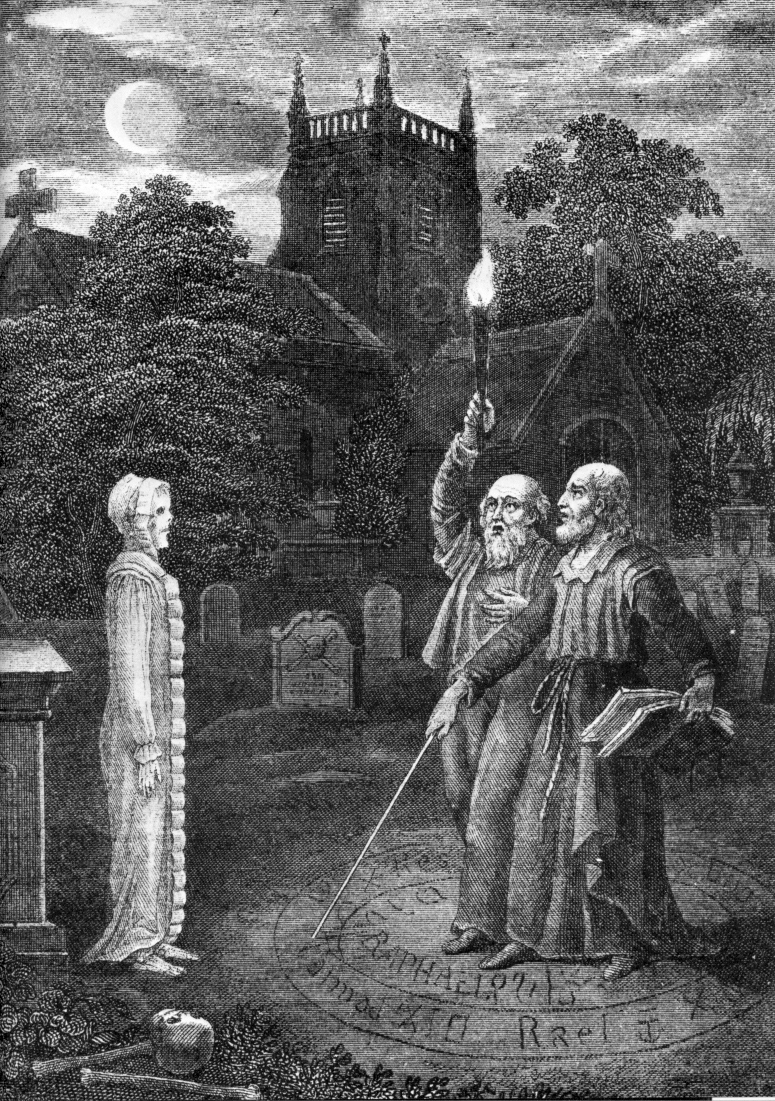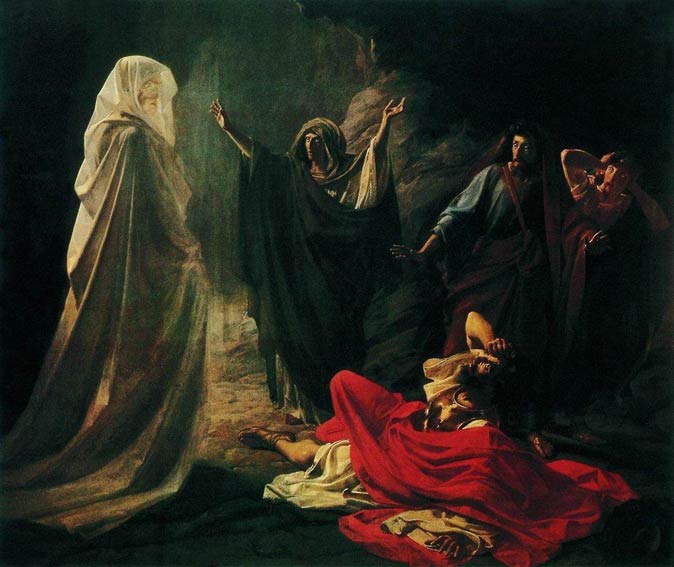The Witch of Endor is a female sorcerer who appears in the Old Testament (1 Samuel 28:3–25). Saul, the first king of Israel, is engaged in a war with the Philistines, and is concerned about the potential outcome of his final battle. Although he has banished all sorcerers from Israel, he nevertheless decides to seek the services of a necromancer
Form of magic in which the dead are re-animated and able to communicate with the sorcerer who invoked them, just as they would if they were alive., a woman his servants knew of who lived in Endor.
Saul disguises himself and visits the woman the night before his battle, asking her to conjure up the spirit of the prophet Samuel to foretell his future. Knowing that what Saul was asking for was prohibited by law, she is initially reluctant to help, but agrees once Saul promises that she will be protected. She summons the spirit of Samuel, which informs Saul that he and his three sons will be killed the next day, and that Israel will be defeated by the Philistines.
Relation to European witchcraft
Throughout the early modern period of European witch-hunts, from the 15th to the 17th century, demonologists and clerics used texts from the Bible to justify their activities. The story of the Witch of Endor posed some problems of interpretation however, such as the question of whether Hebrew witches were the same as their European counterparts. The debate centred on the reality of whatever was conjured up by the Witch of Endor; was it really the spirit of Samuel or was it some kind of demonic illusion? Was she a ventriloquist inhabited by a demon that was able to speak from her stomach in Samuel’s voice?[a]This was considered to be an important distinction, as witches were not believed to be inhabited by demons but instead to be in league with them. In his Daemonologie (1597), King James I posed the question of whether Samuel himself was the witch. The conclusion was that as Samuel was dead at the time of his supposed appearance, he could not be accused of witchcraft.[1]
The debate was somewhat disingenuous however, as the idea of witches receiving their power from evil spirits was an invention of the medieval Christian church, and appears nowhere in the Bible. In the New Testament, the notion of witchcraft is commonly associated with the divination practices of the Romans.[2]

